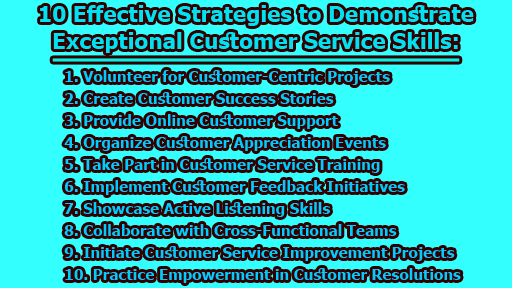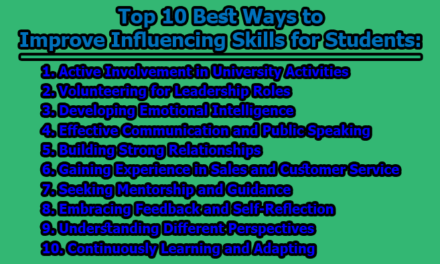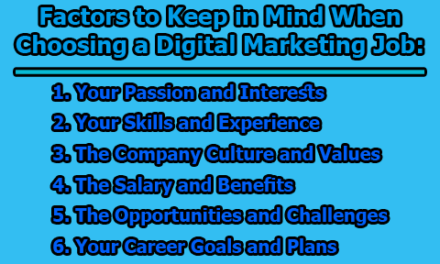10 Effective Strategies to Demonstrate Exceptional Customer Service Skills:
In today’s rapidly evolving business landscape, exceptional customer service skills have become a fundamental requirement for individuals seeking career success. Demonstrating these skills is not limited to those pursuing dedicated customer service roles; they are essential for excelling in any profession. Employers value candidates who can effectively interact with customers, understand their needs, and provide outstanding service. In this article, we will delve into 10 effective strategies to demonstrate exceptional customer service skills and stand out as a valuable asset to employers.
1. Volunteer for Customer-Centric Projects: One powerful way to demonstrate your commitment to excellent customer service is by actively volunteering for projects that focus on improving customer experiences. Many organizations undertake initiatives to enhance customer satisfaction and loyalty. By proactively involving yourself in such projects, you can showcase your dedication to the customer’s journey and your willingness to go the extra mile.
Additionally, participating in customer-centric projects allows you to gain practical experience, refine your problem-solving skills, and collaborate with cross-functional teams. These experiences will provide valuable insights that you can share during job interviews or networking events, illustrating your genuine passion for customer service.
2. Create Customer Success Stories: Customer success stories are compelling narratives that highlight positive interactions between customers and the company. They offer concrete examples of your ability to provide exceptional service and effectively handle challenging situations. To demonstrate this skill, collect feedback and testimonials from satisfied customers, and compile them into engaging case studies.
When presenting these success stories to potential employers, emphasize the customer’s perspective and how your actions positively impacted their experience. This showcases your empathy, active listening, and problem-solving skills in action.
3. Provide Online Customer Support: In the digital age, providing online customer support is a vital skill that employers highly value. Engaging with customers through various digital channels, such as social media platforms, email, or chat, demonstrates your ability to adapt to modern customer communication preferences.
Join relevant online forums or social media groups related to your industry and actively participate in discussions to help customers resolve their queries. By showcasing your expertise and responsiveness in these forums, you establish yourself as a knowledgeable and customer-focused professional.
4. Organize Customer Appreciation Events: Demonstrating your commitment to customer service can extend beyond the workplace. Consider organizing customer appreciation events to express gratitude and strengthen relationships with your customers. These events can take various forms, such as a customer appreciation day, webinars, or virtual gatherings.
By taking the initiative to organize these events, you show your proactive approach to building lasting connections with customers and reinforce the importance of excellent service within your organization.
5. Take Part in Customer Service Training: Investing in continuous learning and professional development is a hallmark of a customer service-oriented professional. Enroll in customer service training programs or workshops to enhance your skills and stay updated with the latest industry trends and best practices.
Completing such courses not only equips you with valuable knowledge and techniques but also allows you to earn certifications that you can highlight on your resume. Demonstrating your commitment to ongoing learning shows employers that you are dedicated to delivering top-notch customer service.
6. Implement Customer Feedback Initiatives: Listening to customer feedback and acting upon it is an integral part of delivering exceptional customer service. Taking the initiative to implement customer feedback initiatives within your workplace showcases your commitment to continuous improvement.
Propose and coordinate programs that gather feedback from customers and your colleagues, providing valuable insights to enhance service quality. Presenting actionable solutions based on this feedback demonstrates your analytical skills and ability to collaborate with others to enhance customer satisfaction.
7. Showcase Active Listening Skills: Active listening is a foundational skill in customer service, enabling you to understand customers’ needs and concerns effectively. During job interviews or networking events, practice active listening by focusing on the speaker, maintaining eye contact, and providing thoughtful responses.
By showcasing your empathetic listening skills, you demonstrate your ability to connect with customers on a deeper level and address their concerns genuinely and appropriately.
8. Collaborate with Cross-Functional Teams: Customer service is not an isolated function but an integrated effort that involves multiple departments within an organization. Showcasing your customer service skills includes demonstrating your ability to collaborate effectively with colleagues from different teams.
Seek opportunities to collaborate on projects that involve cross-functional teams. This will highlight your adaptability, teamwork, and communication skills, all of which are crucial for providing seamless customer experiences.
9. Initiate Customer Service Improvement Projects: Exemplary customer service professionals actively seek ways to enhance customer experiences. Take the initiative to identify areas that could be improved and propose customer service improvement projects to your managers or supervisors.
These projects might involve streamlining processes, implementing new technologies, or creating customer-focused policies. Presenting your ideas and taking the lead in driving positive change demonstrates your leadership qualities and problem-solving abilities.
10. Practice Empowerment in Customer Resolutions: In customer service, empowering employees to make decisions and resolve issues independently is crucial for ensuring customer satisfaction. During interactions with customers, strive to demonstrate your empowerment to resolve problems promptly and effectively.
Being confident in your ability to handle customer concerns showcases your expertise and instills trust in customers. Additionally, this skill reflects positively on your ability to make critical decisions and act in the best interest of both the customer and the organization.
It is apparent that excelling in customer service is a multifaceted endeavor that requires dedication, empathy, adaptability, and continuous improvement. The ten alternative ways outlined in this article offer practical strategies to demonstrate your customer service skills beyond traditional job responsibilities. By incorporating these strategies into your professional journey, you will undoubtedly set yourself apart as a customer-centric professional, ready to make a significant impact in any organization you join.
Frequently Asked Questions [FAQs]:
Why are customer service skills essential in today’s job market?
Customer service skills are vital in today’s job market because businesses across various sectors place a high value on customer satisfaction. Employers seek candidates who can effectively interact with customers, understand their needs, and provide exceptional service. Having strong customer service skills demonstrates your ability to build positive relationships with clients, handle challenging situations, and contribute to the overall success of the organization.
Are customer service skills relevant only for dedicated customer service roles?
No, customer service skills are not limited to dedicated customer service roles. They are valuable in any job that involves interacting with customers, clients, service users, or the public. Whether you work in HR, marketing, sales, or any other field, having excellent customer service skills will help you build stronger relationships with stakeholders, understand their needs better, and provide better service.
How can I develop my customer service skills at university?
University offers various opportunities to develop customer service skills. Part-time jobs in bars, retail, or call centers can provide hands-on experience in dealing with customers. Engaging in public-facing roles in student societies, volunteering for counseling services, or becoming a representative for student bodies can also enhance your interpersonal and active listening skills.
How can I demonstrate customer service skills on my resume or job application?
To demonstrate your customer service skills on your resume or job application, highlight relevant experiences and achievements. Mention instances of outstanding customer service, praise received from managers, and any metrics related to customer interactions, such as the number of customers served per shift or meeting/exceeding sales targets. Additionally, consider obtaining customer service-related certifications and including them in your resume.
What are some common customer service-related interview questions?
Common customer service-related interview questions include:
- What does good customer service mean to you?
- Tell us about a time when you exceeded a client’s expectations.
- How would you handle a customer complaint?
- How do you handle difficult or unreasonable customers?
- Have you ever received very good or very bad customer service? How did you react?
How can I demonstrate customer service skills at an assessment day?
During an assessment day, customer service skills may be assessed through group exercises or role-playing scenarios. Be prepared to handle hypothetical customer interactions or solve problems for clients. Focus on showcasing active listening, empathy, problem-solving, and collaboration skills during these exercises.
Is emotional intelligence important in customer service?
Yes, emotional intelligence is crucial in customer service. Being emotionally intelligent allows you to understand and manage your emotions effectively and empathize with others’ feelings. This skill is particularly important when dealing with dissatisfied customers or resolving conflicts, as it helps you maintain a positive and constructive approach to customer interactions.
How can customer service skills benefit my career?
Customer service skills can benefit your career in various ways. They make you a valuable asset to employers across different industries, enhance your communication and interpersonal skills, and improve your ability to handle challenging situations. Strong customer service skills also contribute to building a positive professional reputation and can open doors to new career opportunities and advancement.
How can I handle customer complaints effectively?
Handling customer complaints effectively involves active listening, showing empathy, and taking ownership of the issue. Apologize for any inconvenience caused and seek solutions to resolve the problem promptly. Offer compensation or alternative options, if possible, to show that you value the customer’s satisfaction and are committed to addressing their concerns.
How can I continuously improve my customer service skills?
Continuous improvement of customer service skills involves seeking feedback from customers and colleagues, participating in training programs, staying updated with industry trends, and learning from experiences. Regularly self-reflect and seek opportunities to enhance your listening, communication, problem-solving, and interpersonal skills to provide even better service to your customers.

Library Lecturer at Nurul Amin Degree College










